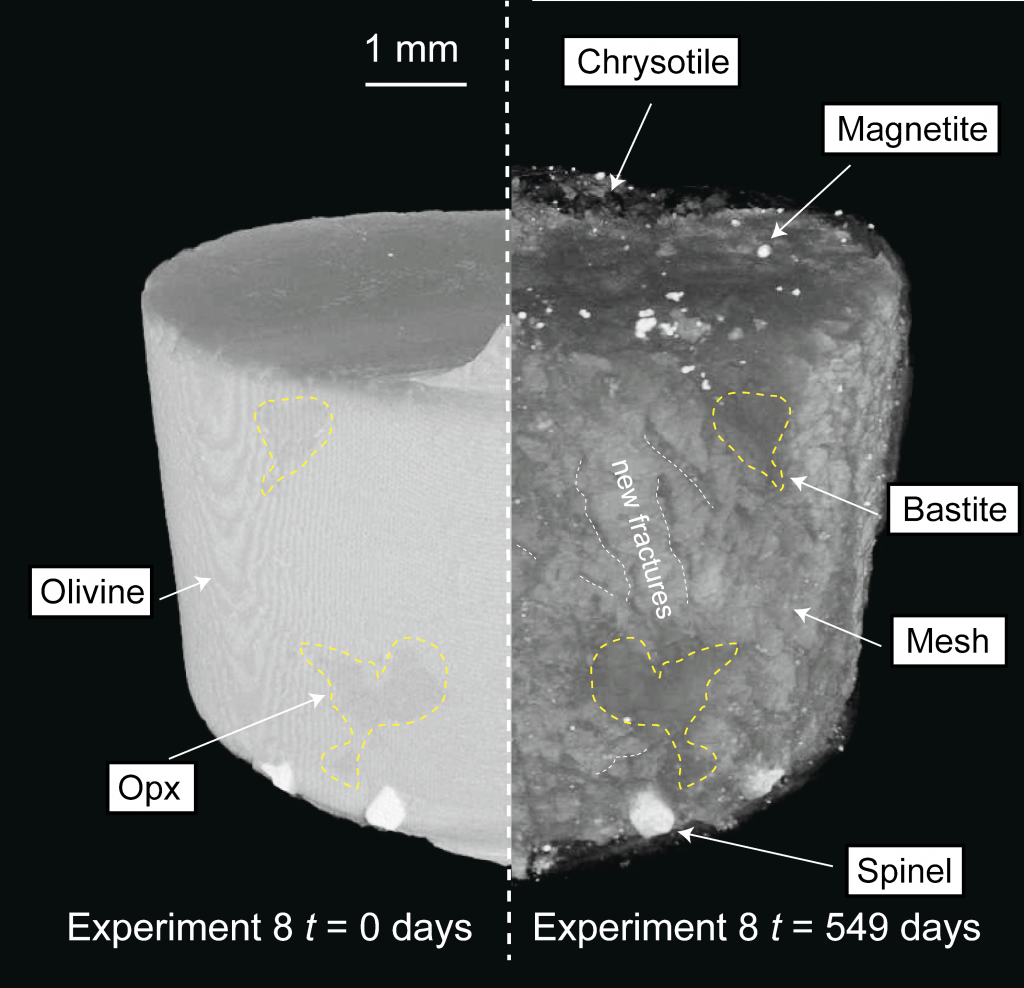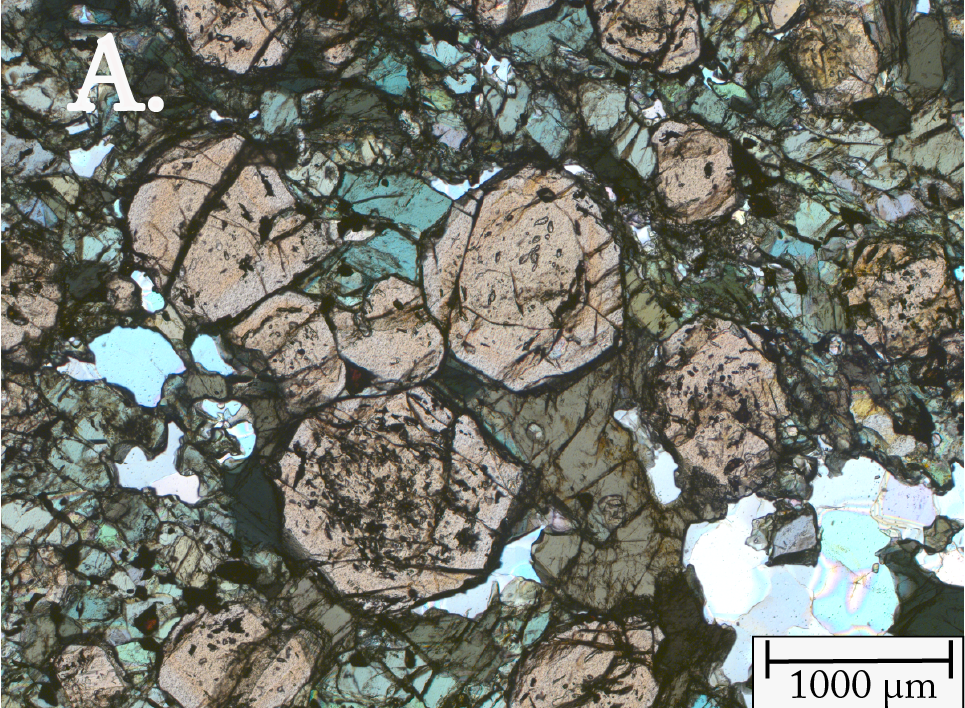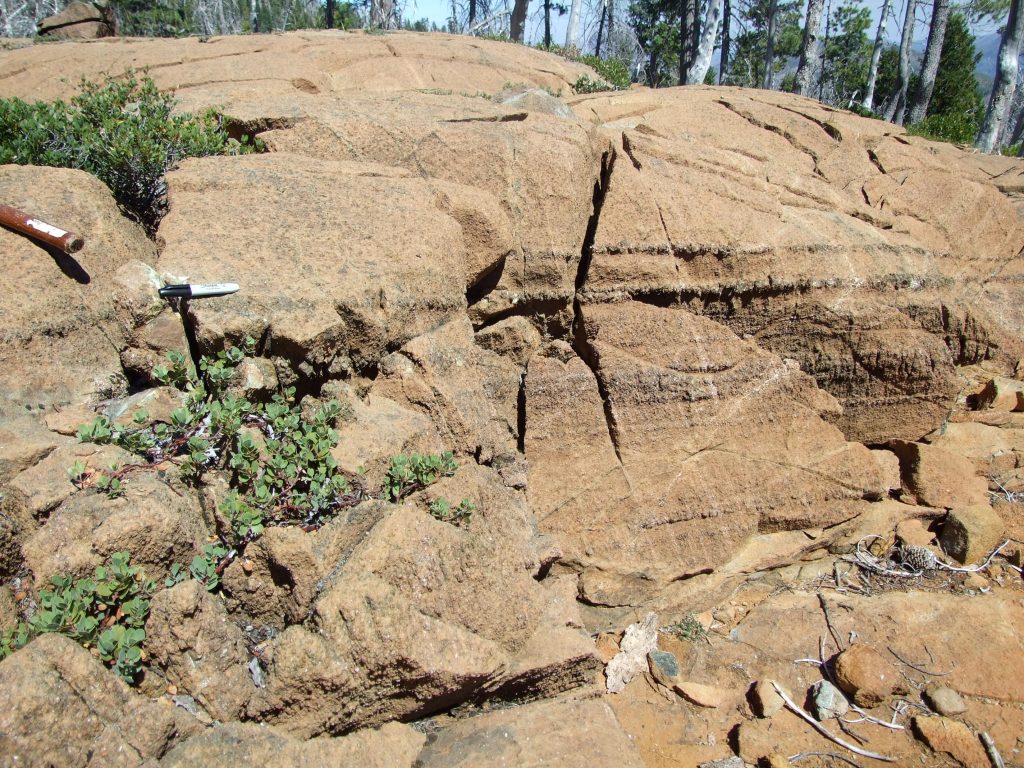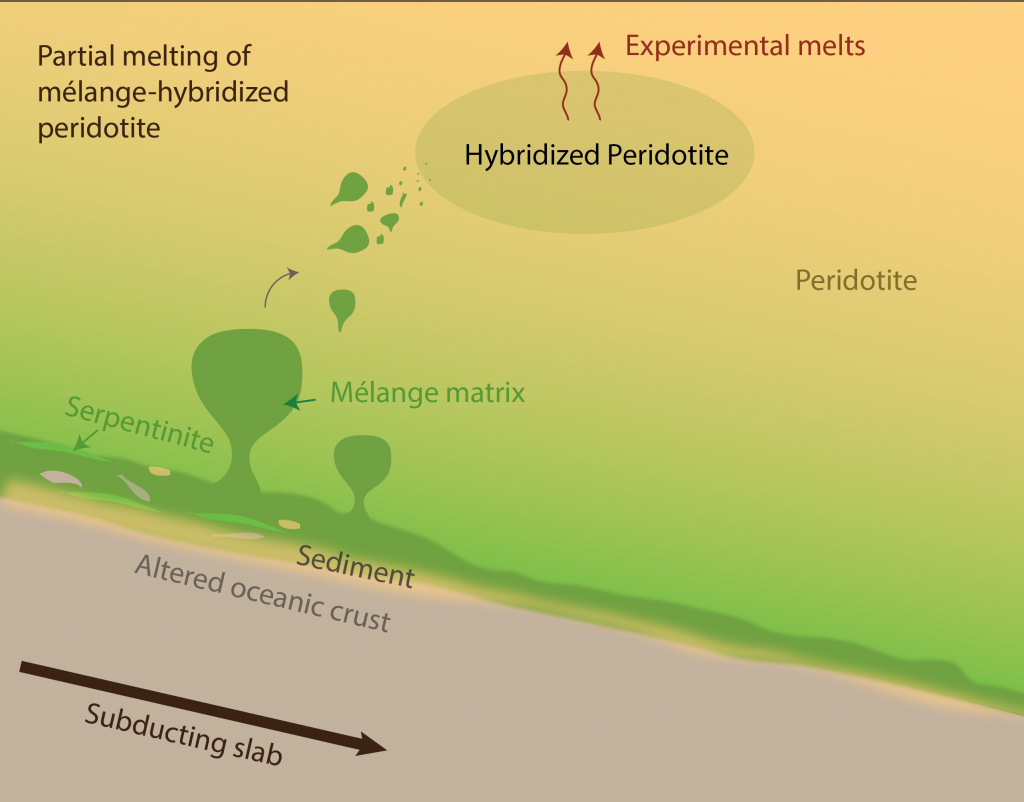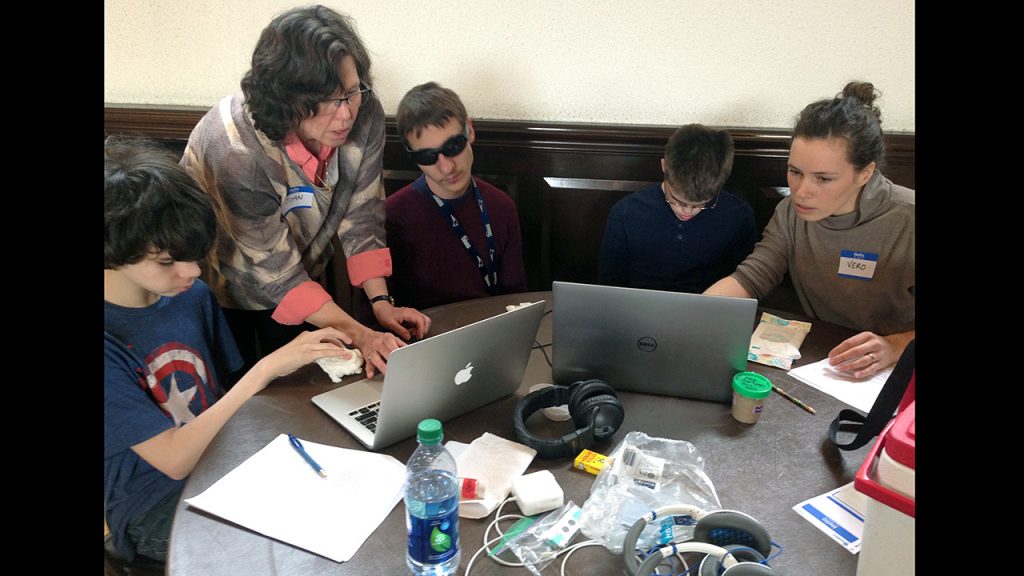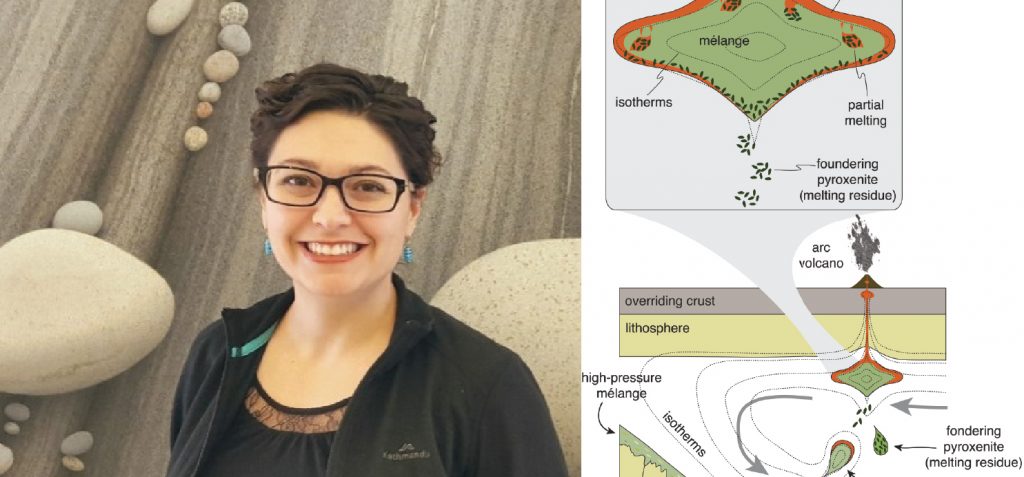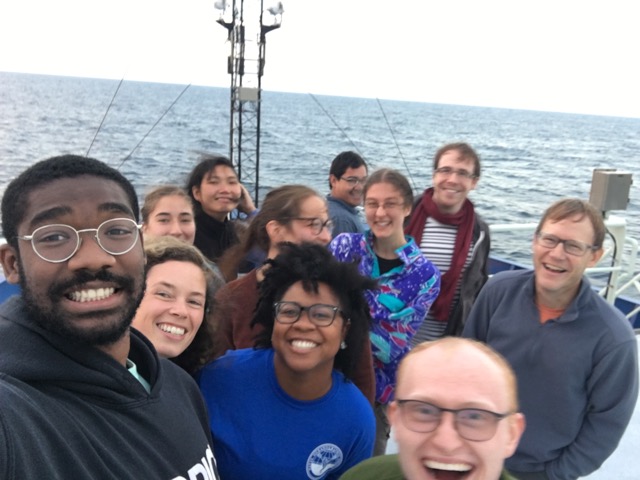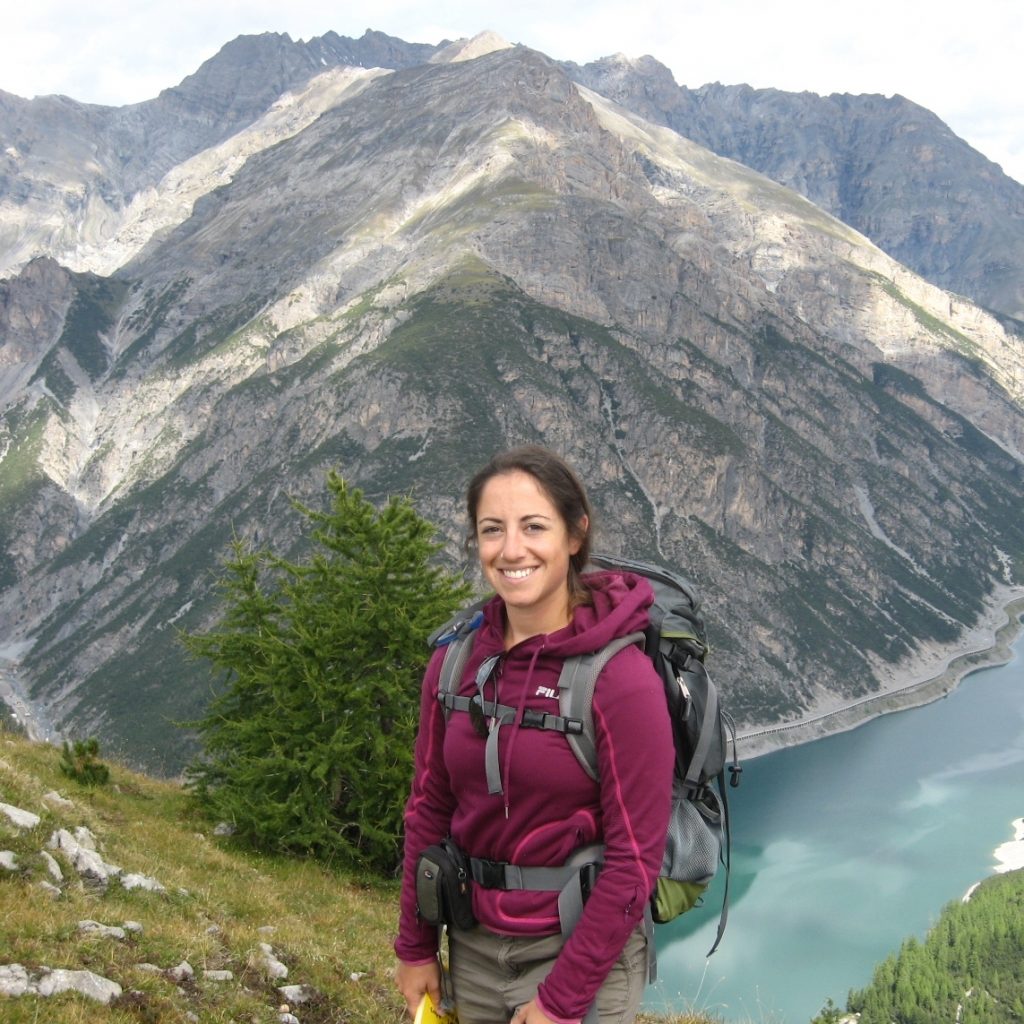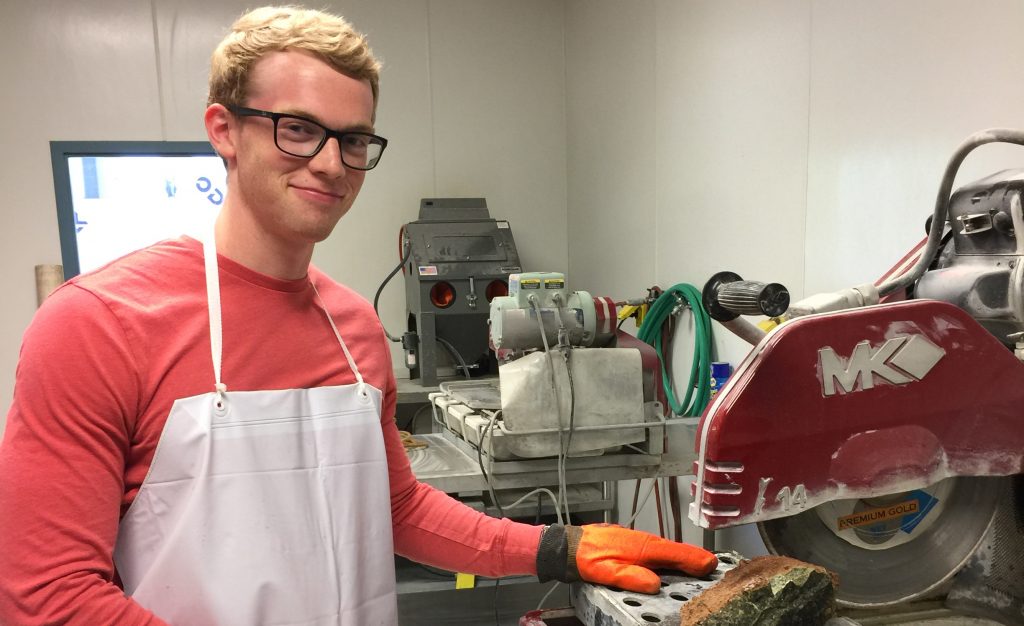News
March 2020 – New Paper in Geology: Quantifying the volume increase and chemical exchange during serpentinization
Quantifying the concurrent changes in rock volume and fluid composition during serpentinization remains a major challenge in assessing its physicochemical effects during continental rifting, seafloor spreading, and subduction. Here we conducted a series of 11 hydrothermal laboratory experiments where cylindrical cores of natural dunite, harzburgite, and pyroxenite were reacted with an aqueous solution at 300…
Read MoreMarch 2020 – New paper in American Mineralogist: The distribution and abundances of halogens in subducted eclogites
Ben Urann (PhD student in Le Roux’s group) just published his work on halogen cycling in subduction zones! We present in situ secondary ion mass spectrometry (SIMS) and electron microprobe analyses of coexisting garnet, omphacite, phengite, amphibole, and apatite, combined with pyrohydrolysis bulk-rock analyses to constrain the distribution, abundance, and behavior of halogens (F and…
Read MoreNov 2019: Emmanuel passed his generals exam
Congratulations Emman!
Read MoreSeptember 2019 – New paper in Minerals: Connecting timing of boninite percolation and pyroxenite formation in subduction mantle
The peridotite section of supra-subduction zone ophiolites is often crosscut by pyroxenite veins, reflecting the variety of melts that percolate through the mantle wedge, react, and eventually crystallize in the shallow lithospheric mantle. Understanding the nature of parental melts and the timing of formation of these pyroxenites provides unique constraints on melt infiltration processes that…
Read MoreJuly 2018 – New paper in Nature Communications: Arc-like magmas generated by melange-peridotite interaction in the mantle wedge
Emmanuel Codillo (now PhD student in Le Roux’s group) just published the work he performed as an undergraduate guest student at WHOI! The mechanisms of transfer of crustal material from the subducting slab to the overlying mantle wedge are still debated. Mélange rocks, formed by mixing of sediments, oceanic crust, and ultramafics along the slab-mantle…
Read MoreApril 2018 – Visit at the Perkins school for the Blind
A great outreach event with geobiologist collaborator Joan Bernhard. This spring, we introduced students at the Perkins School for the Blind to foraminifera, or forams: small, single-celled organisms that abound in ocean waters and seafloor sediments. Joan collected a variety of forams which were scanned using x-ray micro-computed tomography in the Mantle Rocks lab. The computer models were then enlarged,…
Read MoreMarch 2018 – New paper in Geology: melting of pure melanges produces alkaline magmas
Alicia ‘Cici’ Cruz-Uribe (WHOI postdoc 2014-2015) has just published her work on melange melting in Geology. https://pubs.geoscienceworld.org/gsa/geology/article/528313/generation-of-alkaline-magmas-in-subduction-zones “Here we report results from experiments in which natural mélange materials were partially melted at upper mantle conditions to produce alkaline magmas. Partial melts produced in our experiments have trace-element abundance patterns that are typical of alkaline arc lavas,…
Read MoreOct 2017 – Back from the mid-Atlantic ridge!
The SCARF 2017 student-led cruise is back on shore! After a few days in the Azores we sailed across the mid-Atlantic ridge aboard the R/V Neil Armstrong and acquired bathymetry, gravity and magnetics data along a flow line. It was an amazing adventure! SCARF 2017: A modern-day transatlantic crossing
Read MoreSept 2017 – Welcome Emily!
Emily just started a Doherty Postodoctoral scholar at WHOI and is working on (U-Th)/He thermochronology and trace element geochemistry to 1) date magnetite that form during fluid alteration, 2) investigate the geochemical fingerprints of serpentinization at different tectonic settings, and 3) constrain the thermal history of mantle peridotites. Emily has extensive experience with anything outdoorsy…
Read MoreJuly 2017 – Welcome Taylor!
Taylor comes from Brown University and is a 2017 Summer Student Fellow working on the formation of pyroxenites in the Josephine Ophiolite (Oregon). He is using EPMA, LA-ICP-MS, REE closure temperatures and Nd isotopes by MC-ICP-MS to decipher the timing of vein formation in the mantle.
Read More
